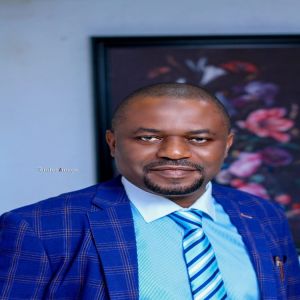Rasheed Oyewole Olaniyi (MNAL) is a Professor of Economic and Social History in the Department of History University, Ibadan, Nigeria. He served as the Sub-Dean (General) Faculty of Arts (2007-2009), Sub-Dean (Postgraduate) Faculty of Arts and Coordinator, Leadership and Governance Programme, Centre for Sustainable Development, University of Ibadan (August 2014 – July 2017). He earned his Ph.D from Bayero University, Kano, Nigeria in 2004. He is the author of Diaspora Is Not Like Home: A Social and Economic History of Yoruba in Kano, 1912-1999 (Muenchen, Germany: Lincom Europa, 2008); Community Vigilantes in Metropolitan Kano, 1985-2005 (IFRA Ibadan, 2005) and History for Senior Secondary Schools (Ibadan: Bounty Press, 2017); Migration and the Awori-Yoruba Frontiers: History and Orality of Idewure (Ibadan: Praxis Educational Publishers, 2021). Olaniyi has presented several academic papers at international conferences and held fellowships in many parts of the world. In the summer of 2008, he was a Visiting Scholar of African History at the Kennesaw State University, Georgia, USA. Since 2005, he has taught, supervised and mentored many undergraduate and postgraduate students. Olaniyi has contributed chapters in books and articles in journals on urbanisation, migration, diaspora, labour, human trafficking and social movements. Olaniyi is a Fellow of the American Council of Learned Societies (ACLS); Member, CODESRIA, Dakar Senegal; Senior Fellow, French Institute for Research in Africa (IFRA), University of Ibadan; Fellow, Jawaharlal Nehru Institute of Advanced Study, Jawaharlal Nehru University, New Delhi, India and Research Fellow, Leibniz Moderner Oriental (ZMO), Berlin Germany. While on Sabbatical at KolaDaisi University, Ibadan, he served as the Acting Dean of Faculty of Arts, Management and Social Sciences in 2018; and in 2019, Acting Head of Department, History and International Relations, Mcpherson University, Seriki-Sotayo, Ogun State, Nigeria. He recently concluded fieldwork on Yoruba migrants and diaspora identity in Ghana and Northern Nigeria.

